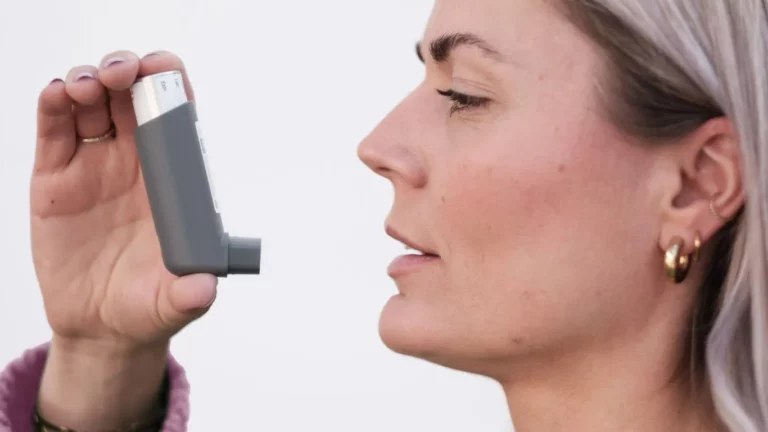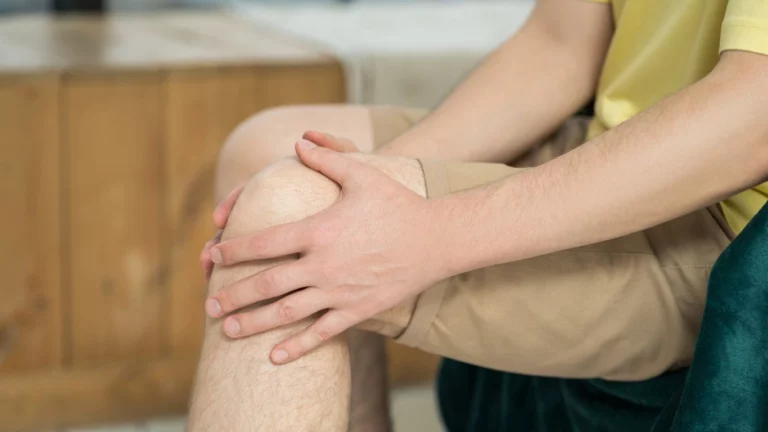Best Hydration Tips for GERD – A Complete Guide
Effective hydration plays a key role in managing GERD (Gastroesophageal Reflux Disease) symptoms. This article outlines the best hydration tips to help you stay comfortable while managing GERD.
If you suffer from GERD (Gastroesophageal Reflux Disease), staying properly hydrated is crucial for managing your symptoms. But not all drinks are created equal, and some may even trigger heartburn or worsen GERD symptoms. In this comprehensive guide, we’ll explore the best hydration tips to help you stay hydrated without irritating your digestive system. Whether you’re new to managing GERD or looking for ways to improve your hydration habits, these tips will make a significant difference in how you feel.

Understanding GERD and Hydration
GERD is a chronic digestive condition where stomach acid frequently flows back into the esophagus, causing symptoms like heartburn, regurgitation, and difficulty swallowing. While hydration is essential for overall health, people with GERD need to be mindful of what they drink to avoid triggering or worsening symptoms.
Proper hydration helps maintain a healthy mucosal lining in the digestive tract and ensures the smooth movement of food through the stomach. However, some beverages can irritate the esophagus and exacerbate reflux symptoms. Let’s dive into which drinks are best and which ones you should avoid.
Best Drinks for GERD: Stay Hydrated Without the Burn

When it comes to GERD, choosing the right drink is key to managing symptoms effectively. Here are some of the best hydration options for those dealing with GERD:
1. Water – The Ultimate Hydration Choice
Water is the most neutral, safe option when it comes to hydration for people with GERD. It helps dilute stomach acid and prevents the acid from irritating the esophagus. Drinking water throughout the day also promotes overall digestion and keeps the body hydrated. However, it’s important to drink it in moderation and avoid gulping large amounts at once, as this can put pressure on the stomach and trigger reflux.
2. Herbal Teas – Gentle on the Stomach
Herbal teas such as chamomile, ginger, and licorice root tea can provide soothing relief for GERD sufferers. These teas are naturally anti-inflammatory and can help reduce irritation in the esophagus. Ginger tea, in particular, has been shown to alleviate nausea and reduce acid reflux. Make sure to drink these teas in moderation, as excessive intake could have the opposite effect.
3. Aloe Vera Juice – A Soothing Option
Aloe vera juice has been known for its soothing and healing properties, especially for those with digestive issues like GERD. It can help reduce inflammation in the esophagus and promote better digestion. However, it’s important to choose aloe vera juice that is free from added sugars, as sweetened versions can trigger heartburn.
4. Coconut Water – A Hydrating and Reflux-Friendly Drink
Coconut water is a natural and refreshing drink that can help maintain electrolyte balance without irritating the stomach. It’s low in acidity and provides a gentle option for staying hydrated while managing GERD. Coconut water also contains potassium, which can help soothe the digestive tract.
Drinks to Avoid When Managing GERD

While staying hydrated is essential, certain drinks can aggravate GERD symptoms and lead to discomfort. Here are some common beverages you should avoid:
1. Citrus Juices
Juices like orange, grapefruit, and lemon juice are highly acidic and can irritate the esophagus, triggering heartburn and acid reflux. If you enjoy citrus, try to consume it in small amounts or choose non-citrus options like apple juice instead.
2. Carbonated Beverages
Carbonated drinks such as sodas and sparkling water can lead to bloating and increased pressure in the stomach, which may cause acid to reflux into the esophagus. The carbonation can also relax the lower esophageal sphincter (LES), the muscle that helps keep stomach acid from flowing backward.
3. Caffeinated Drinks
Caffeinated beverages like coffee, tea, and energy drinks can trigger GERD symptoms because caffeine can relax the LES and increase acid production. If you need a pick-me-up, try decaffeinated options or herbal teas instead.
4. Alcohol
Alcoholic drinks, especially wine and beer, are notorious for causing acid reflux. Alcohol relaxes the LES and increases stomach acid production, which can lead to heartburn and regurgitation. Limiting alcohol intake or avoiding it altogether is recommended for GERD management.
Best Hydration Practices for GERD Relief
In addition to choosing the right drinks, how you hydrate can make a difference in managing GERD symptoms. Here are a few hydration practices to keep in mind:
1. Drink Small Sips Throughout the Day
Instead of drinking large amounts of fluids at once, try sipping small amounts of water or other GERD-friendly drinks throughout the day. This prevents overloading the stomach and reduces the chance of acid reflux.
2. Stay Upright After Drinking
After drinking, try to stay upright for at least 30 minutes. This position helps the body properly digest the fluids and minimizes the risk of acid reflux. Avoid lying down immediately after drinking, as this can promote the backflow of stomach acid.
3. Avoid Drinking Right Before Bedtime
Avoid drinking large quantities of fluids right before bed, as this can increase the risk of reflux while you sleep. Try to finish your hydration about an hour before going to bed, allowing your body to digest properly.
4. Keep Hydrated, but Don’t Overdo It
Staying hydrated is essential, but drinking excessive amounts of fluids, especially right before meals, can dilute stomach acid and disrupt digestion. Aim to drink water throughout the day, but be mindful not to overconsume at once.
Conclusion
Proper hydration is a key component of managing GERD symptoms effectively. Choosing the right drinks and adopting good hydration habits can help alleviate discomfort and support digestive health. Stick to GERD-friendly beverages like water, herbal teas, and coconut water, and avoid acidic, carbonated, and caffeinated drinks. By making these simple changes, you can improve your hydration and better manage GERD symptoms.
Appendices
References
- American College of Gastroenterology (ACG). (2023). Managing GERD: Tips and Treatments. Read Article
- National Institute of Diabetes and Digestive and Kidney Diseases (NIDDK). (2024). GERD: Treatment Options and Lifestyle Changes. Read Article
- Johnson, T., & Patel, R. (2022). Hydration and GERD: A Review of the Evidence. Journal of Digestive Health, 12(4), 112-118. Read Article
FAQs
- Can drinking water worsen GERD symptoms? Water is usually safe for GERD, but drinking too much at once or gulping large amounts may trigger reflux. It’s best to sip water throughout the day.
- Is it okay to drink herbal teas for GERD? Yes, herbal teas like chamomile and ginger can be soothing and helpful for GERD. Avoid teas with caffeine or citrus flavors.
- Can coconut water help with GERD? Yes, coconut water is a hydrating and gentle option for GERD sufferers. It’s low in acidity and can help soothe the digestive tract.
- How much water should I drink daily if I have GERD? Aim for at least 8 glasses of water per day, but remember to drink in small amounts to avoid overloading the stomach.
- What are the best drinks to avoid with GERD? Avoid citrus juices, carbonated beverages, caffeine, and alcohol, as they can worsen GERD symptoms.
Disclaimer: This article is for informational purposes only and should not be considered as medical advice. Always consult a healthcare professional for personalized recommendations regarding GERD management and hydration.

Dr. Gwenna Aazee is a board-certified Internal Medicine Physician with a special focus on hypertension management, chronic disease prevention, and patient education. With years of experience in both clinical practice and medical writing, she’s passionate about turning evidence-based medicine into accessible, actionable advice. Through her work at Healthusias.com, Dr. Aazee empowers readers to take charge of their health with confidence and clarity. Off the clock, she enjoys deep dives into nutrition research, long walks with her rescue pup, and simplifying medical jargon one article at a time.







